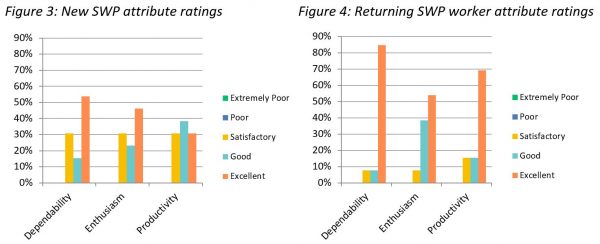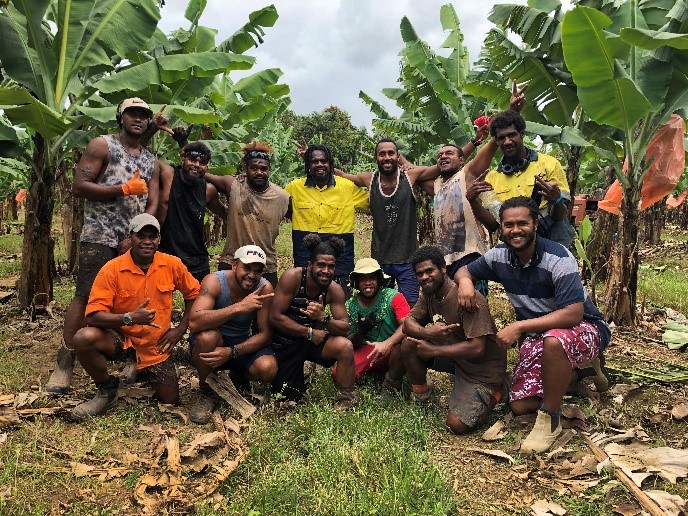The DFAT-funded Labour Mobility Assistance Program (LMAP) recently undertook a survey of employers authorised to hire workers under the Seasonal Worker Programme (SWP), known as approved employers. The aim of the survey was to better understand their perceptions of how the program is being managed within sending countries and to identify areas for improvement. While only 14 employers responded to the survey (out of approximately 90 approved employers at the time the survey was conducted), they tended to be the larger employers, accounting for the employment of 40% of all SWP workers in 2016/17. Responses were discussed in more depth in a subsequent focus group.
Employers are generally satisfied with how sending countries manage the SWP
Responses in relation to engagement with Labour Sending Units (LSUs) were positive, but indicated room for improvement. The majority of employers rated their interactions as satisfactory, good or excellent, although very few ratings of excellent were awarded. “Satisfactory” was the most common rating for three out of the five questions.
Figure 1: Satisfaction with LSU engagement

Employers are happy with the workers they receive
The preparation of workers before they arrived in Australia was also rated by the majority of employers as satisfactory, good or excellent, with the exception of a small number of employers who recruited predominantly from Vanuatu and Tonga. LMAP’s experience has been that providing workers with adequate information to prepare them for life in Australia, including on their work and employment conditions, and rights and responsibilities during deployments, is essential to the smooth running of the Programme, but that this will require ongoing effort and support, particularly in those countries sending high numbers of workers.
Figure 2: Satisfaction with preparedness of workers

Participant workers of the SWP were rated positively for dependability, enthusiasm and productivity, with a marked improvement for returning workers, mirroring responses to the recent ABARES study on seasonal worker productivity.

Employers want to be directly involved in recruitment
Seasonal workers can be recruited through one of three recruitment methods: government-managed work-ready pools, direct recruitment, or recruitment through private sector agents. While governments in several countries favour recruitment exclusively through work ready pools, employer feedback indicated that once a recruitment pipeline is identified in a particular country, employers prefer direct recruitment, an arrangement under which the employers themselves select the workers. 58% of those surveyed preferred this model, whilst a further 33% preferred recruitment through paid agents. No respondents indicated the work-ready pool as their preferred method of recruitment, although some noted that when the work-ready pool was well managed, using it was an appropriate method for first time employers. Given that the SWP is demand-driven, Pacific island countries should take note of the employer preference for direct recruitment.
The potential of Pacific labour mobility
Feedback through the survey and focus group is overwhelmingly supportive of the role of Pacific labour mobility schemes in addressing gaps in the Australian agricultural labour force. SWP employers noted that a combination of the certainty, productivity and positive attitude of Pacific workers and the flexibility of local employment/working holiday makers provides them with a workforce that meets their demands. Most indicated that they expected to increase their recruitment of seasonal workers in subsequent years, both in absolute numbers and as a proportion of their seasonal workforce.
At the same time, sending countries should continue to strengthen their responsiveness to employer needs, and the quality of the selection and preparation of the workers sent to Australia, to help ensure increased participation by their workers for years to come.
For more, see the research report based on this survey here.


Nice to recruit direct
Can we have a list of farmers who wish to recruit seasonal labour and we can communicate directly with them? The government offers are too biased and there is a practice of nepotism that is killing the interest of most young people.